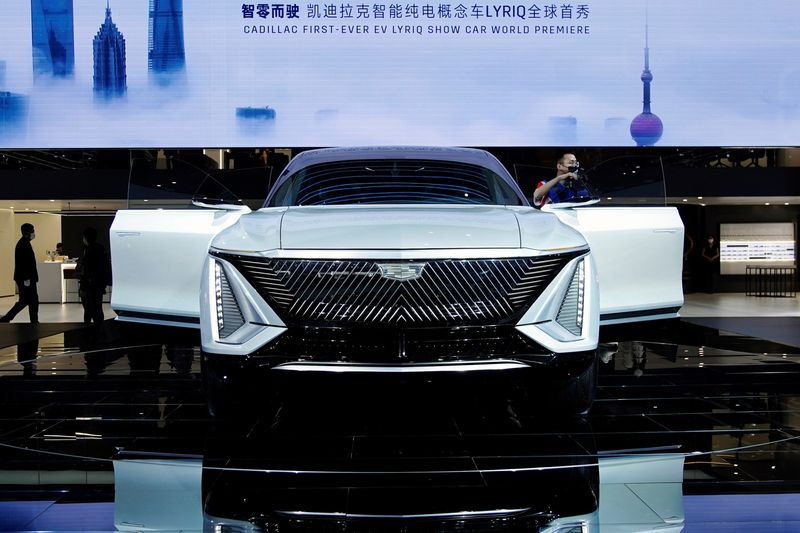By David Shepardson
WASHINGTON (Reuters) -General Motors said Thursday it expects its Cadillac Lyriq and Chevrolet Blazer EV will temporarily lose eligibility for a U.S. electric vehicle tax credit starting Jan. 1.
GM said on Jan. 1 only its Chevrolet Bolt EV will be eligible for the consumer EV tax credit.
Ford Motor (NYSE:F) said its E-Transit will lose the $3,750 tax credit on Jan. 1, as will the Mach-E and Lincoln Aviator Grand Touring plug-in hybrid, but its F-150 EV Lighting will keep the $7,500 credit and the Lincoln Corsair Grand Touring will retain a $3,750 credit.
GM said the two vehicles are losing the credit because of two minor components, and added it has pulled ahead sourcing plans for qualifying components in early 2024. GM said it expects the Lyriq and Blazer EV will regain eligibility in early 2024.
GM said it also expects EVs Chevrolet Equinox EV, Chevrolet Silverado EV, GMC Sierra EV and Cadillac OPTIQ produced "after the sourcing change will be eligible for the full incentive."
The U.S. Treasury issued guidelines this month detailing new battery sourcing restrictions that take effect Jan. 1 and aimed at weaning the U.S. electric vehicle supply chain away from China.

GM said, "Treasury proposed strict rules disqualifying all EVs with certain foreign battery content including low-value components, which effectively means most EVs will not be eligible beginning on January 1."
Tesla (NASDAQ:TSLA)'s Model 3 Rear-Wheel Drive and Long Range vehicles will also lose federal tax credits starting Jan. 1, the automaker said last week.